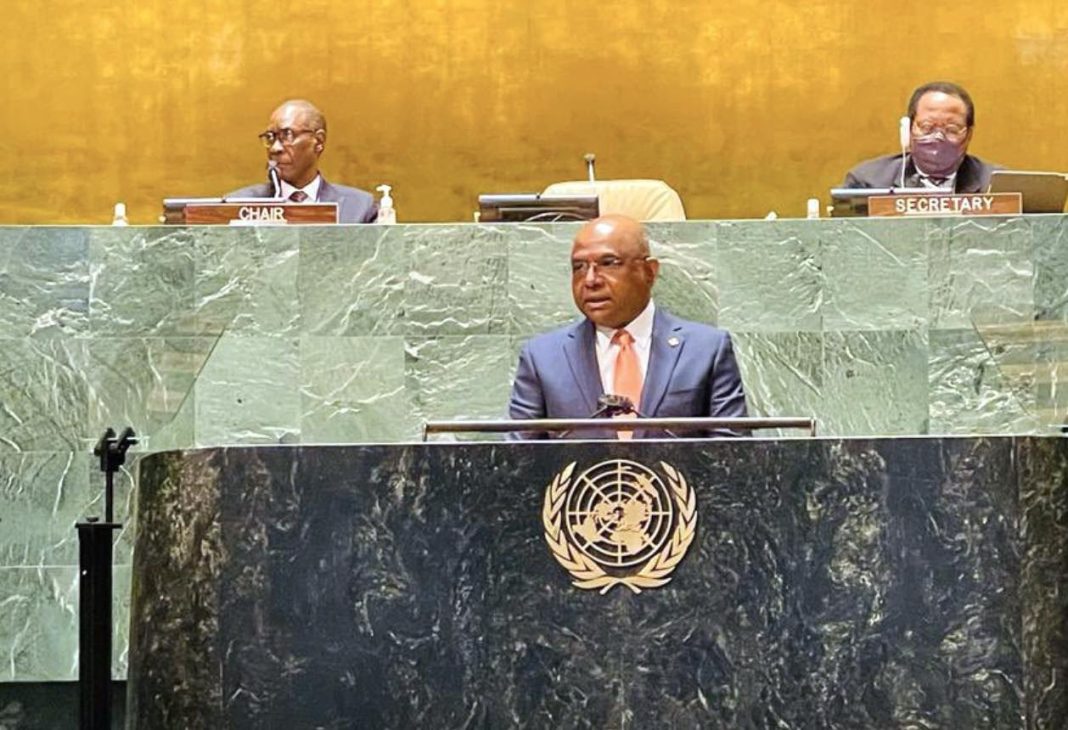By Janet Ekstract
UNITED NATIONS (GOLDENHORN AGENCY) – On Friday, the 66th session on the Commission on the Status of Women (CSW66) wrapped up its two-week long sessions from March 14-25, calling on the United Nations system, international financial institutions and multi-stakeholder platforms to continue supporting Member States to achieve gender equality and the empowerment of all women and girls with regard to climate change, environmental and disaster risk reduction policies and programs. The statement from the CSW66 said that Member States adopted “conclusions” that serve as a “blueprint for world leaders to promote women’s and girl’s full and equal participation and leadership in the designing and implementation of climate change, environmental and disaster risk reduction.”
The Commission reiterated: “Only by addressing the underlining barriers that exacerbate women’s and girl’s vulnerabilities in their social and economic status, safety, well-being and livelihoods, will it be possible to tackle the pervasive disadvantages in access to, ownership of and control over land and resources, equal access to services such as universal healthcare and quality education, gender-based violence prevention, and the equal sharing of unpaid care and domestic work which hampers women’s resilience and rights.”
The finalized document that the CSW66 presented is calling for the voices of all manner and type of females throughout the world to be “amplified.” It also requests that their “inputs must be heard and included in the management, conservation and sustainable use of natural resources and climate mitigation and adaptation initiatives and programs.” This includes indigenous women, older women, women with disabilities, migrant women and those living in rural, remote, conflict and disaster-prone areas. The document calls for “leveraging and strengthening the full, equal and meaningful participation and influence of women and girls.”
The Executive Director of UN Women, Sima Bahous commented: “The agreements reached by the Commission come at a point when the world urgently needs new and coherent solutions to the interlocking crises that impact us all. We now have a pathway with practical, specific measures for global resilience and recovery, and a shared understanding that solutions depend on bringing women and girls to the center. Let’s capitalize on the work done here, put these agreements into immediate practice and move these decisions forward through all the major forums ahead, including COP27.”
CSW66 stated its concerns about the devastating effects that climate change, environmental degradation and disasters have on all women and girls that may include the loss of homes, livelihoods, water scarcity, destruction and damage to schools and health facilities. The Commission emphasized the urgency of “eliminating persistent historical and structural inequalities, discriminatory laws and policies, negative social norms and gender stereotypes that perpetuate multiple and intersecting forms of discrimination.” The Commission further stated that as a result of displacement, that women and girls face very specific challenges that include “separation from support networks, increased risk of all forms of violence, and reduced access to employment, education, and essential healthcare services, including sexual and reproductive healthcare services, and psychosocial support.” Another significant factor the Commission highlighted is the “economic and social fallout” of the COVID-19 pandemic which it stated has multiplied the impacts of climate change, environmental degradation and disasters while forcing people into extreme poverty. They also pointed out that the global pandemic increased the demand for unpaid care and domestic work with reports of numerous forms of incidences of violence directed specifically at women and girls.
In any initiative addressing climate change, environmental and disaster and risk reduction, four factors must be considered: promoting women’s and girl’s full and equal participation and leadership to make natural resource management and climate, environment and disaster risk action more effective. CSW66 stressed that though women and girls are actively involved in all these areas that their activities need to be highlighted. The second factor is expanding gender-responsive finance at scale for climate and environment action and to reach women’s organizations, enterprises and cooperatives. The third factor is building women’s resilience in the context of agricultural and food systems, forest and fisheries management and the sustainable energy transition. The fourth factor is enhancing gender statistics and sex disaggregated data in the gender-environment nexus, and fostering gender-responsive just transitions.
To truly achieve gender equality, the Commission has implemented a new online Commitments Dashboard whose purpose is to give the public an opportunity to search existing 2000 commitments and new ones. The Dashboard is key part of the accountability framework to get quicker results for gender equality and to track the impact and contribution to the achievement of Sustainable Development Goals (SDGs) that the UN has set forth. The first report is scheduled to be published on the sidelines of the 77th Session of the UN General Assembly in September 2022. The Commission highlighted what they term as “mutually reinforcing relationship among achieving gender equality and the full, effective and accelerated implementation of the Beijing Declaration and Platform for Action and the gender-responsive implementation of the 2030 Agenda for Sustainable Development.” In addition, the Commission will conduct the Beijing plus 30 Review in 2025 with its goal of assessing the “implementation of the Platform by countries and to identify strategies for further progress.” An interactive youth dialogue with representatives from member states will be incorporated into its regular program as well.
An ongoing issue the Commission emphasized is the myriad of challenges and barriers to f, full participation and leadership that women and girls face around the world such as reductions in funding, violence, harassment, reprisals and threats to the physical security of their members. CSW66 lauded major contributions from civil society organizations that include women’s and youth-organizations, women human rights defender, women journalist and trade unions in promoting and protection the human rights of all women and girls – including in the context of climate change, environmental and disaster risk reduction policies and programs.




